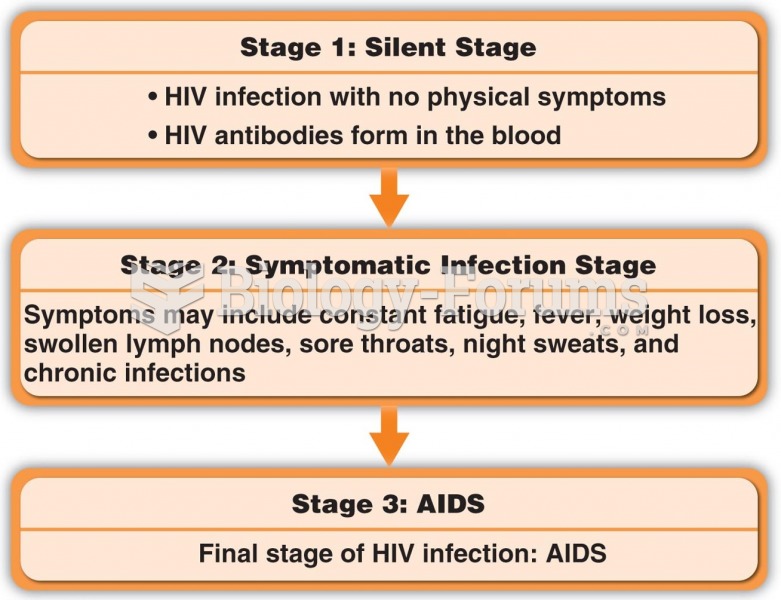|
|
|
Since 1988, the CDC has reported a 99% reduction in bacterial meningitis caused by Haemophilus influenzae, due to the introduction of the vaccine against it.
It is difficult to obtain enough calcium without consuming milk or other dairy foods.
Never take aspirin without food because it is likely to irritate your stomach. Never give aspirin to children under age 12. Overdoses of aspirin have the potential to cause deafness.
The average older adult in the United States takes five prescription drugs per day. Half of these drugs contain a sedative. Alcohol should therefore be avoided by most senior citizens because of the dangerous interactions between alcohol and sedatives.
To prove that stomach ulcers were caused by bacteria and not by stress, a researcher consumed an entire laboratory beaker full of bacterial culture. After this, he did indeed develop stomach ulcers, and won the Nobel Prize for his discovery.
 In this painting evangelist George Whitefield appears to be cross-eyed. This is no fault of John Wol
In this painting evangelist George Whitefield appears to be cross-eyed. This is no fault of John Wol
 A woman in a net on a Congo shore. Although the importation of slaves was illegal after 1807, histor
A woman in a net on a Congo shore. Although the importation of slaves was illegal after 1807, histor





